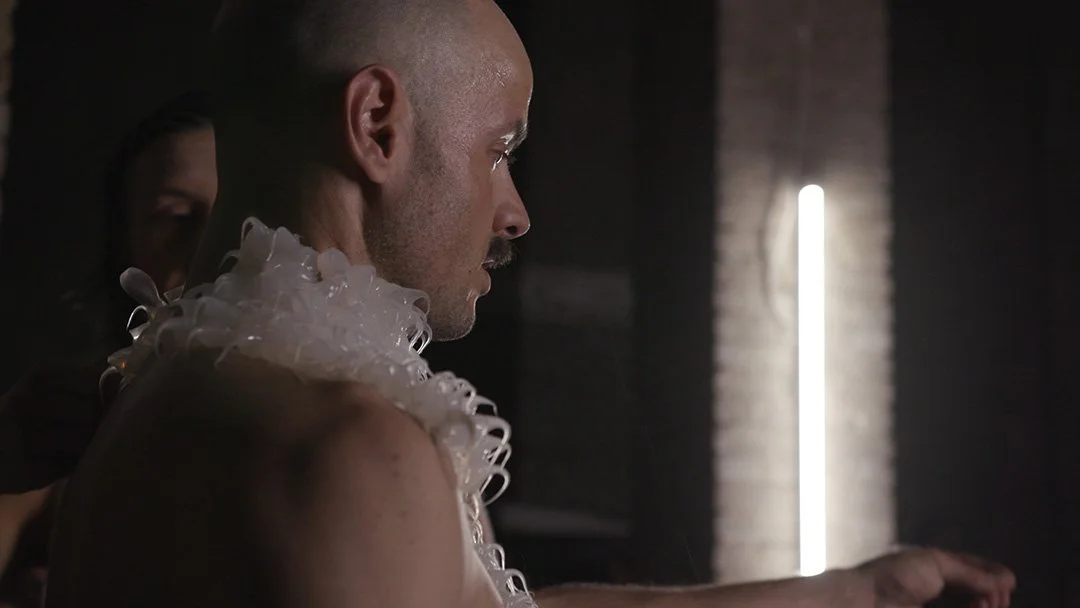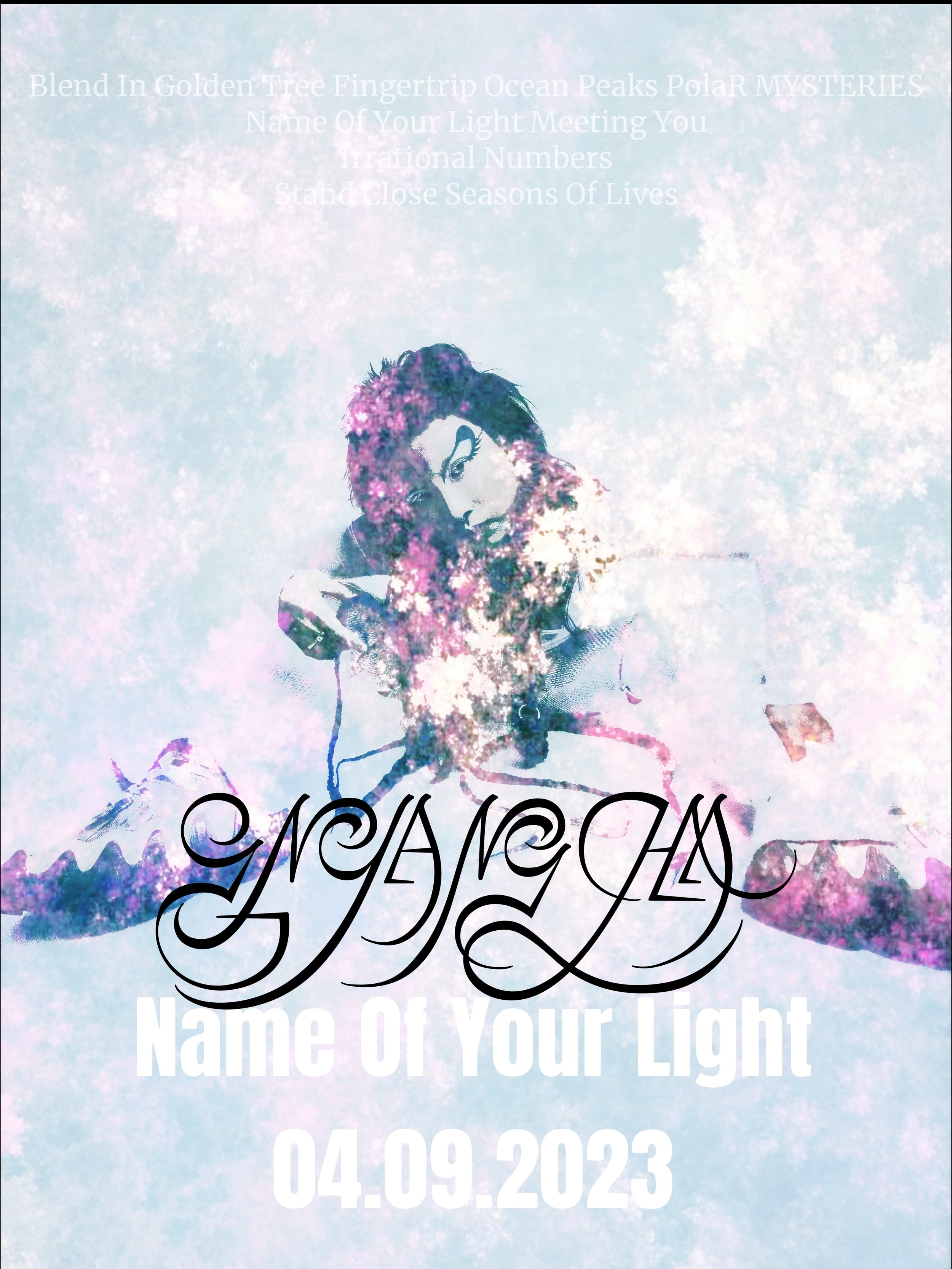Jennifer Vanilla
Jennifer Vanilla (they/them), a NYC pop performance artist, has released their new album 'Castle In The Sky.' Jennifer also offers a bizarre music video for "Humility's Disease" with her body of work.
"Humility's Disease," directed by Luca Venter, is a campy adventure in which Jennifer Vanilla, as Becca Kauffman, plays a pseudomasculine devil-like person surrounded by two angels.
Jennifer Vanilla was created over four years, during which Becca Kauffman, the genius behind the brand, realised they were gender fluid and non-binary. 'Castle in the Sky' explores themes of exploration and is a dexterous and mercurial "jennifreaky" excursion through 90s dance music, no wave, art pop, and more.
Coeval chat with Jennifer about their “jennifreaky” journey, all things music style and find out more about 'Castle in the Sky'.
How did you get into music? Have you always wanted to pursue a producer career?
I’ve always had a strong relationship with music and rhythm since I was a little kid. My mom took me to a Sugarcubes concert when I was five and would play the Talking Heads and The B52’s on car rides, all of which were pretty influential. Dancing in the kitchen was highly encouraged. I loved to do impressions of people, and so my exposure to expressive, eccentric singers really pushed my chameleonic vocal tendencies. I don’t really consider myself a producer— I collaborated with the producer Brian Abelson on my new record, Castle in the Sky, as well as a previous EP, J.E.N.N.I.F.E.R. We wrote and produced together as a duo, and generally that’s how I’ve always worked: collaboratively with others. I’m a social learner, a social thinker, and a social maker. I like to talk through my ideas out loud with a partner and materialize them using our combined powers.
For people who are unaware of your music, in your own words what is the sound you create?
It’s 1 am and you’re flipping channels on late-night motel TV. You stumble onto an infomercial with a catchy beat and a voice that’s telling you everything you ever wanted to know and everything you ever wanted to be. They’re selling you back to yourself for free. The person with the voice looks directly at you through the television screen and reaches out their hand. You take it. Let’s go.
You have had praise from the likes of VOGUE, Them., NYLON, Stereogum, and more - why do you think people are so interested in your music, aesthetic and overall vibe?
When I first started this project in 2016, there was a running joke embedded into the Jennifer Vanilla persona of blind and unquestioning ambition, fame-seeking, and capitalistic success. I borrowed from commercial tropes and made advertisements selling myself as a conceptual product. Despite the fact that it was in self-conscious jest, I think the technique actually worked– the formula is so familiar to us all, it prompts a response that’s stamped into our cells. Through the Jennifer persona, I also worked to model a kind of haplessly excessive positivity, for both myself and others, which I think had its own kind of magnetism. Ultimately though, I will say that unidimensionality came to feel extremely exhausting, and it compelled me to dissolve the persona and pivot to a more sincere approach in line with my actual emotional state. That’s what I’m working towards now.
And, what inspires your music? Personal memories, art, etc?
Heroes and villains, fairy tales, gurus, the choreography of the street, the times I was and was not cast in the school plays, ecstatic moments on the dance floor, all the self-help in the world, New York no wave, New York City in general, Zoe B’s show on WFMU radio, Michael Clark’s post-punk choreography, crosswalks and traffic cones, collaborative chemistry.
You have just released your new single titled "Humility's Disease" - what does this track mean to you? How do you want people to feel when listening to "Humility's Disease"?
Humility’s Disease steps out from behind the ‘vanilla’ facade of the Jennifer persona to uncover some real off-the-cuff inner nastiness. I don’t think humility is catastrophically harmful in reasonable doses—I guess its purpose is to keep your ego in check— but in this song, I’m thinking of humility in its most extreme expression, as utter self-flagellation, -deprecation, -denial. A low place, where your inner landscape is cruel and inhospitable and you feel incapable of letting light in. The lyrics are an aggressive pep talk full of Big Dick Energy meant to counter a defeated state of mind and help you erupt out of limited thinking. With any luck, it propels you to transcend all your egoic afflictions… Unlikely, but it’s worth working towards.
The track comes with a hypnotic video, featuring you as what I believe to be a devil, can you walk us through the video concept and production?
Yep, that’s me as a devil-adjacent persona who I’ve been jokingly calling Johnnifer Vanillo. Johnnifer is the devil on your shoulder, telling you all the stuff you’re afraid you shouldn’t think about, but the thoughts are there whether you like it or not, so you may as well get them out of your system. Embodying a villainous character provides an alibi through which to unload. It’s a bubbling up of suppressed urges and self-punishing ethos, like looking for your reflection in a burping and gurgling basin of hot angry lava. Humility is supposed to be a virtue, but what if sustaining a lowly idea of yourself perpetuates the battle axing your own self-worth? So this devilish figure embodies an alternative, maybe controversial framework: humility is a disease, it’s gonna get you down and keep you down. In the music video, the devil waltzes around a quaint American neighbourhood with a posse of angels, acting like he owns the joint despite his bulging red muscles and liberty spikes being outlandishly out of place. You don’t normally see the symbolic forces of “good” and “evil” casually communing, but in this video, those opposing poles blur and swirl; there is no pure right or wrong. The angels and the devil are stock characters made more complex by their fluidity.
How would you like your music to develop even more over the next couple of years?
I’m in the process of shedding the theatrical persona that this music was birthed. “Jennifer Vanilla” began as a character, an alter ego, but six years later and through a pandemic, I’m less interested in fiction and more invested in authentic realness. I’d like to make more personal, narrative music, and music about coordinated movement in public space– the choreography of the street, the way we glide through and navigate shared realms. I’d like to try my hand at self-producing, and explore more collaborations, and I’m learning to play the drums.
What to read next















